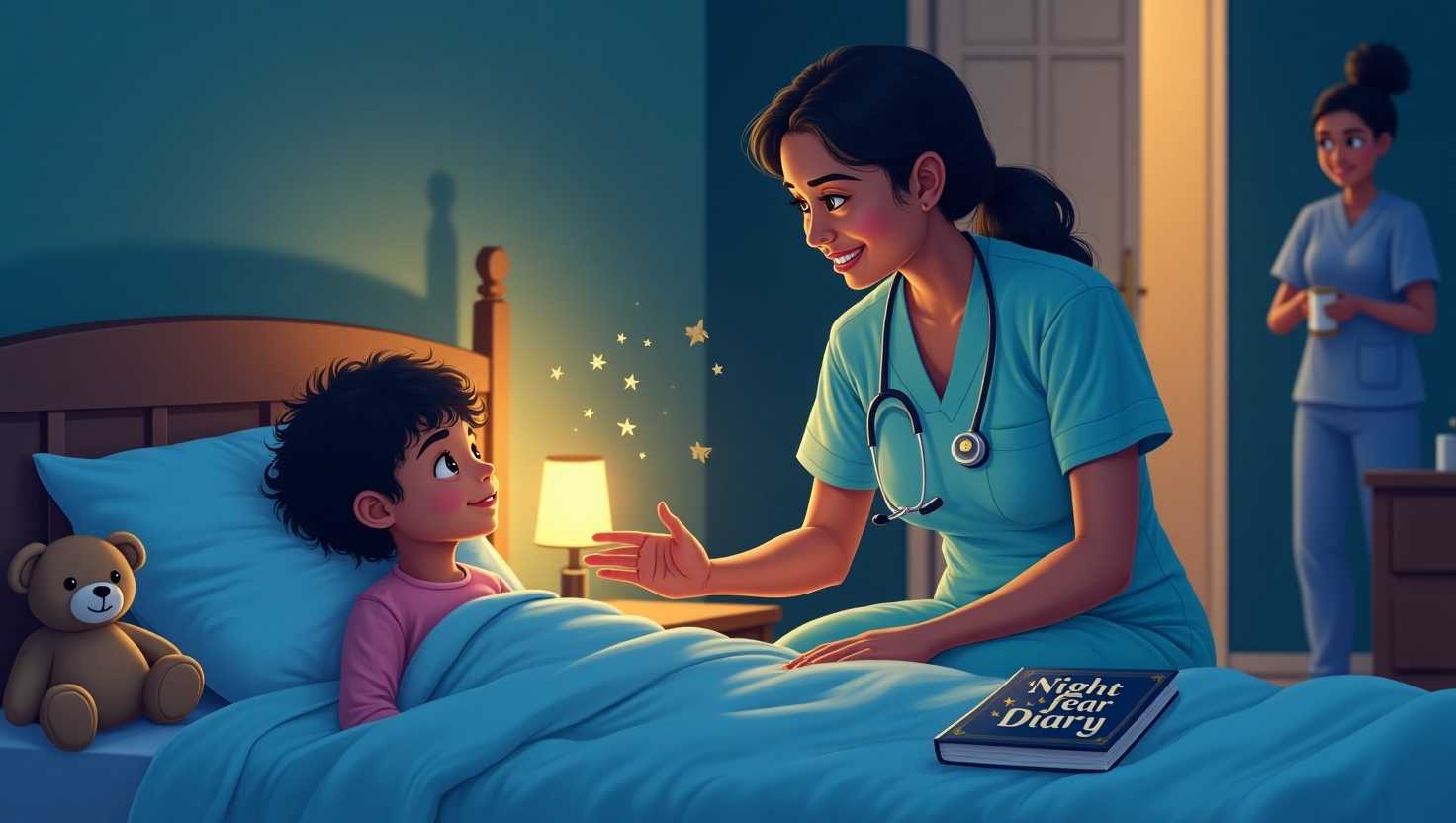
Night Terrors In Children: When To Consult A Kids Specialist

If you're looking for a children care hospital in Seawoods because your child is experiencing night terrors, you're not alone. Sleep is essential for every child’s development, but when night terrors disrupt their rest and yours, it can be a distressing experience for the whole family. Understanding the causes, signs, and appropriate times to seek professional help is key to managing this sleep disturbance effectively.
In this blog, we’ll explore night terrors, how they differ from nightmares, and most importantly, when to consult a kids specialist.
What Are Night Terrors in Children?
Night terrors are a type of sleep disorder that falls under the category of parasomnias, a disruptive sleep behavior that includes talking, walking, or screaming during sleep. Unlike nightmares, which occur during REM (rapid eye movement) sleep, night terrors typically occur in non-REM sleep, usually in the first few hours after a child falls asleep.
Children experiencing a night terror may:
-
Sit up suddenly in bed
-
Scream or cry out in panic
-
Appear awake but are unresponsive
-
Show signs of fear or confusion
-
Breathe rapidly or have an increased heart rate
-
Not remember the episode the next morning
While these episodes can be frightening, they are usually harmless, and children often outgrow them during adolescence.
Causes of Night Terrors in Children
There is no single cause for night terrors, but several factors can contribute:
-
Sleep deprivation or irregular sleep schedules
-
Stress or anxiety
-
Fever or illness
-
Certain medications
-
Family history of sleep disorders
-
Sleep apnea or breathing issues
-
Caffeine or sugar intake before bed
It’s important to monitor your child’s habits and identify any potential triggers that may be contributing to night terrors.
How Are Night Terrors Different from Nightmares?
Parents often confuse night terrors with nightmares, but they are quite different:
| Feature | Night Terrors | Nightmares |
|---|---|---|
| Occurs During | Non-REM sleep | REM sleep |
| Time of Night | Early in the night | Later in the night |
| Child Awakens Easily | No | Yes |
| Can Recall the Episode? | No | Yes |
| Behavior | Screaming, panic, no awareness | Frightened, can be comforted |
Understanding these differences can help you respond appropriately when your child wakes up crying or screaming during the night.
When to Consult a Kids Specialist
While night terrors are typically harmless, there are situations when seeking professional help is necessary. You should consult a pediatrician or child sleep specialist if:
-
The night terrors occur frequently
-
If your child experiences night terrors several times a week, it may indicate an underlying issue such as sleep apnea, anxiety, or an emotional disturbance.
-
-
They last longer than usual
-
Most night terrors last 5–15 minutes. If episodes are prolonged or intensify over time, it’s worth getting a professional evaluation.
-
-
Your child gets hurt during an episode
-
Sleepwalking or thrashing around during night terrors can pose safety risks. A specialist can help implement strategies to make the sleep environment safer.
-
-
They disrupt daytime functioning
-
If your child is tired, irritable, or having trouble concentrating during the day, their night terrors might affect their overall health.
-
-
You suspect an underlying condition
-
Conditions like anxiety disorders, neurological issues, or seizures may sometimes mimic or exacerbate night terrors.
-
Early pediatrician or sleep specialist intervention can help rule out serious problems and provide guidance tailored to your child’s needs.
How Are Night Terrors Treated?
Night terrors usually don’t require medical treatment and can be managed at home. Here are some tips to help reduce their occurrence:
-
Maintain a consistent sleep schedule
-
Create a calming bedtime routine
-
Reduce screen time before bed
-
Limit sugary or caffeinated drinks in the evening
-
Use nightlights if your child is afraid of the dark
-
Avoid waking your child during a night terror
-
Record episodes to detect patterns
If your child’s night terrors are linked to stress or emotional concerns, therapy or counseling may also be beneficial.
The Role of a Kids Specialist
A kids specialist, such as a pediatric neurologist or sleep therapist, can perform a detailed assessment of your child’s sleep behavior and suggest solutions, such as:
-
Sleep studies
-
Behavioral therapy
-
Cognitive interventions
-
Parental counseling
-
Medical management (in rare cases)
Their expertise ensures that both your child and your family can sleep easier knowing the right steps are being taken.
Conclusion
While night terrors in children are common and often harmless, they can be scary for both the child and the parent. Knowing when to consult a kids specialist can make all the difference in addressing any underlying causes and ensuring your child’s sleep is peaceful and restorative.
If you’re unsure about your child’s sleep patterns, don’t hesitate to speak to a pediatrician or specialist. A good night’s sleep is just as important as good nutrition and emotional support.
Author Bio
Article Comments
No Comments!
At present there are zero comments on this article.
Why not be the first to make a comment?
Similar Articles
Search Pages
User Upgrade
account to full use of editor,
Including hyperlinks
Article Categories
There are zero sub-categories in this parent category.
There are zero sub-categories in this parent category.

















